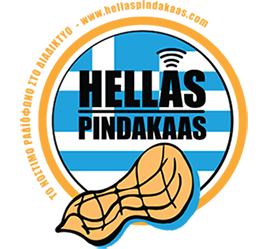The Theatrical Workshop of the University of Cyprus, in collaboration with the Dutch Society for Modern Greek Studies, the Dept of Modern Greek Studies (UvA) and the Stichting Marmoucha, presents a performance based on the study of the dramatic Cavafy. “Waters of Cyprus, of Syria, and of Egypt”. Listen on demand to a discussion in the studio with organizers Hero Hokwerda and Angelos Avgoustidis about this unique performance, which will take place for only one show on 20 April at Podium Mozaiek Theater in Amsterdam. The performance will be in Greek with live subtitles in Dutch.
.
This show is in Greek. To listen on demand click on this link.
.
After its successful journey to Delphi, Rome and Athens, the theatre production “Waters of Cyprus, of Syria, and of Egypt. Study on the ‘Dramatic’ Cavafy” of the Theatrical Workshop of the University of Cyprus, will be presented in Amsterdam on April 20th at Podium Mozaiek Theater. The performance is based on the entire Cavafy oeuvre and combines those poems or parts of poems in which the Alexandrian makes use of techniques and elements characteristic of the dramatic art. The stage presentation is further enhanced by Evagoras Karagiorgis’ inspired music composed specifically for the play, as well as by Stavros Antonopoulos’ choices in costume design, both of which add a distinctive aesthetic to the performance. The director’s approach, which takes into account the different stages in Cavafy’s development as a poet (early, formative, mature), as well as the thematic areas of his poetry (philosophical/didactic, historical/political, sensual/erotic poems), makes the performance not only an enjoyable artistic event but also a productive educational experience.
The approach takes into account the different stages in Cavafy’s development as a poet (early, formative, mature), as well as the thematic areas of his poetry (philosophical/ didactic, historical/political, sensual/erotic poems). The poet’s translations are also considered as part of his oeuvre, regardless of whether they have resulted in a new poem of his own (“A Love”, “Correspondences According to Baudelaire”), or have remained fragmented exercises of his essayistic thinking (for example, translations from Dante’s “Inferno”, Shakespeare’s “Measure of Measure”, Keats’ “Lamia” or Tennyson’s “Ulysses”).
The performance seeks to highlight, in a coherent theatrical act, Cavafy’s documented knowledge of and love for the theatre and the dramatic art, emphasising those elements which the Alexandrian assimilated from the art of drama – ancient, medieval and contemporary, as well as from major European poets whose poetics were also based in part on the dramatic art (for example, Robert Browning and his use of dramatic monologues).
In Cavafy’s dramatic monologues, the speaker, the dramatic persona, addresses a named, yet silent recipient (typical examples include the philosopher Hermippus in the poem “Homecoming from Greece”, the courtier Sithaspes in “Philhellene”, the poet Mebes in “Simeon”), or sometimes an anonymous addressee hidden behind vocatives such as “Friends”, “You”. A marginal case is the poem “Dünya Güzeli” in which the recipient of the “World Beauty’s” dramatic monologue is her own reflection in the mirror.
Finally, it should be noted that the experience of approaching Cavafy’s dramatic poems convinced us in the validity of G. P. Savvides’ observation that: “his dramatic instinct and his love for the theatre, its environment, works and people, which has been attested in several of his poems, as well as in two early articles about Shakespeare, allow us to speculate that in a society more closely related to the theatre, Cavafy would have probably turned to this literary genre” (Mikra Kavafika, vol. B, p. 44).
Text selection, adaptation and stage direction: Michalis Pieris
Music: Evagoras Karagiorgis
Set and costumes: Kypros Georgiou, Anna Kyriazi
Lighting design: Carolina Spyrou
Production manager, assistant director: Stamatia Laoumtzi
For tickets click here.
NL

















































![[:en]Do we need to learn Dutch? [:el]Ολλανδικα - τελικα χρειαζονται ή μπορουμε και χωρις αυτα; [:]](https://i0.wp.com/hellaspindakaas.com/wp-content/uploads/2016/02/keep-calm-and-prepare-for-the-netherlands.png?fit=1200%2C675&ssl=1&resize=200%2C200)
![[:en]'Rocky Horror Picture Show' remake gets warped on Fox[:el]Το θρυλικο «Rocky Horror Picture Show» στην τηλεοραση[:]](https://i0.wp.com/hellaspindakaas.com/wp-content/uploads/2016/10/RockyHorrorPictureShow_Wallpaper01_1920x1200.jpg?fit=1200%2C750&ssl=1&resize=200%2C200)
Be the first to comment